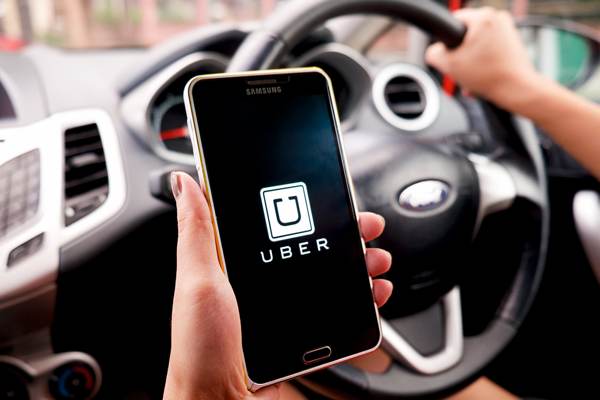
Scammers have continued to defraud online buyers through fake websites or profiles on actual retailer sites and fake adverts, with victims licking their wounds. They offer products and services at irresistible prices as bait, writes FELICITAS OFFORJAMAH.
The growing exploitation of online trading systems by scammers is becoming burdensome to Nigerian buyers.Online shopping scams involve fraudsters pretending to be legitimate online sellers, either with a fake website or a fake ad on a genuine retailer site.
While many online sellers are legitimate, unfortunately scammers can use the anonymous nature of the Internet to rip off unsuspecting shoppers. In most cases, scammers open the store for a short time, often selling fake branded clothing, jewelry, electronics, etc. and after making a number of sales, the stores disappear.
They also use the latest technology to set up fake retailer websites that look like genuine online retail stores. They may use sophisticated designs and layouts, possibly stolen logos, and even a domain name similar to an authentic retailer.
Many of these websites offer luxury items such as popular brands of clothing, jewelry and electronics at very low prices.
“It’s so bad that a store near your house will have an online presence and the real owner doesn’t know about it. Two people manage the same business. One genuine, the other fake,” said Emmanuel, a victim of the phenomenon.
On Twitter, Xiaomi Nigeria had announced a reduction in the price of Redmi 12C. Nadima got interested and asked around for online vendors.
“I was working in a village for an outreach and it was far from the city where I could get access to any phone store. A twitter user recommended @ultimate_samphill, a phone dealer that supposedly sells Xiaomi phones. I went to his page and checked his previous posts and connoted that he’s been operating for a while; he had followers and good reviews so he should be genuine and can be trusted,” she recalled.
However, transacting with this online dealer was the beginning of Nadima’s nightmare. “I told him that I will pay for the phone once it gets delivered and I inspect it but he refused saying he only accepts payment before delivery. He said I should trust him as he has been functioning for years. Looking at the portfolio he had online, I took the bold step and transferred money to the account that he gave me.
“He promised that I will get the phone in two days. After waiting for three days, I think it was on Wednesday, I chatted him up. He said there was a transportation issue and so he would deliver on Friday or refund me. Since then he has blocked me on WhatsApp and Twitter. I did not get any phone and my N70,000 is gone,” she lamented.
Nadima said it’s been hard for her to purchase anything online since that experience. “I take the pain to go to physical stores or shop on Jumia because of the option of payment on delivery for customers. That experience was really traumatic for me,” she added.
The Guardian, however, discovered that there is actually a phone dealer called Samphill, who has a physical store in Edo State and also has an online presence. The genuine seller has also warned online customers to beware of fraudsters impersonating him on his Facebook page. Another victim, Susanna Ameho, had ordered a human hair wig on Instagram but was scammed of her hard earned N250,000.
“I bought my wig from @gleevirginhair and the annoying part is she didn’t block me on social media. She replies to my messages every time I ask about my hair. I have insulted and cursed her but she will still reply with excuses that the hair is coming; the airplane is faulty, bla, bla. It’s like she derives joy from giving me stupid excuses. Owing to the frustration, I blocked her and warned people about her. The fraudster told me that the delivery will be done efficiently in two days; it has been four years now and my human hair has not landed. I don tire,” she said.
Ameho said she discovered that her friend also ordered her hair extension from the same Instagram wig seller. “My friend ordered from the same person too but surprisingly her wig was delivered but of a very low quality. The hair falls off easily; you can’t wear that wig out, and people will think you are selling animal hair because it will be all over your body. I don’t know what’s real anymore. I ordered goods, got nothing; and my friend ordered and got a low quality product. Since then, I haven’t bought anything on Instagram,” she stated.
Large online shopping malls are not spared as a victim had narrated that he fell for a fake Jumia promo scam on Facebook. “These fraudsters disguised themselves as Jumia representatives and I don’t know how they did it; they came up with an exciting promo on home electronics, including fridge, freezers, oven and other appliances,” James recalled. He ordered a fridge and an electric iron but his order was never delivered.
“When I made my findings, I discovered that it’s kind of a pseudo Jumia website they used; it wasn’t the original Jumia website and I’m sure I’m not the only victim. These fraudsters are affecting genuine businesses because they scare off buyers and project a bad light for the product or company involved,” he noted.
A mother of two, who begged to be anonymous, said she had also clicked on a fake Jumia promo while browsing online. “I was just browsing online randomly when some adverts appeared on the website I was on. The products included the fridge and refrigerator that I was looking for on Jumia days ago but this one was offering half the price. I clicked on it and it led me to a Jumia promo website. The only option there was payment before delivery. I thought probably the reason was because it was a promo. I used my card to pay for the goods worth N160,000 and that’s how my money went.”
She added that it made her distrust Jumia but seeing the experience from people around her who ordered from the genuine website, she was able to regain confidence in the company.
“I think I just fell prey to people who are greedy and want to ruin the good name of a thriving company,” she noted. The Guardian also had an experience with another popular online trading platform in the country. It ordered three crates of eggs from Alao on the platform at a discounted price of N8,000. After insisting that payment must be before delivery owing to the fragility of the product and distance, nothing was delivered after the money was transferred into the account. She reported her feedback on the seller’s page and after two days, her comment was deleted.
Giving reasons for shopping online, some victims of online retail fraud stated that apart from convenience, they opt for online shops because of the reach and scarcity of some products in physical markets.
“There are some body creams you can’t easily find in Nigerian markets but they are available online,” one netizen buyer said. Another online shopper, who identified herself as Ifeoma, also said: “I get most of my baking products abroad, so I must patronise online stores and condemn myself to the rise in blood pressure associated with payment before delivery most times. It’s that kind of thing where you pray that what you actually paid for is delivered and well, 70 per cent of the time it happens.”
Online dealer in jewelry and accessories, Lola Oruh, who imports her jewelry from Dubai and has an online store on Facebook and Instagram, explained why some dealers insist on payment before delivery.
“Because of unserious buyers and the cost of shipping from abroad, I tell my customers to pay half of the price of the goods. So, in case of anything, I pay for the delivery and probably damage and return the goods.
“Earlier in my business, I had an experience where a customer demanded goods worth $2,300 and promised to pay upon delivery. When I imported, packaged and sent it to the customer, she refused, saying it wasn’t what she wanted. I burst into tears. Do you know how much loss was incurred? So now, if you can’t pay before delivery, forget it. I understand that buyers might not want to take the risk but what of the sellers? And some customers don’t even agree to pay for delivery or logistics fees.”
Oruh said that e-commerce fraud might not be mitigated anytime soon because Nigerians are at loss on how to deal with these fraudsters when they come across them.
“It’s something the Economic and Financial Crimes Commission (EFCC) and the Central Bank of Nigeria (CBN) should look into. I had expected e-commerce to thrive here, but greed won’t allow for it. The CBN has a lot of work to do; it must make it mandatory for fintech companies not to open accounts for anybody without a BVN and NIN.”
Stephen Oghogho, a trader in second hand home appliances, said that customers are usually advised not to pay before delivery so that they don’t fall prey to online predators.
“E-commerce fraudsters don’t respect anyone’s status. As long as you want to buy something online, you are a potential prey and as long as you are selling something online too.
“The day I got a report that someone impersonated my business online and duped people, I reported it to the police but nothing was done about it. I had to tag the account online and warn people. Luckily, customers who have great experiences with me defended me too. It wasn’t a pleasant period for me. Instagram later flagged his account as fake, but it’s painful that our local authorities can’t do anything,” he said.Country Manager for DPO Pay, Henry Owolabi, observed that fraud is slowing down the growth of Nigeria’s e-commerce sector.
“Fraud is a large, complex and often organised problem in Nigeria, costing the local economy hundreds of millions of dollars each year. This is hurting the growth of a promising e-commerce sector because players across the ecosystem are nervous about losing money – merchants, because of the chargebacks they face, and shoppers, because they are worried about sharing their card details in case they have their accounts compromised.”
According to a NIBBS report, “instant payment transactions experienced a more than four-fold increase between September 2019 and January 2023 to N38 trillion ($82.6 billion).”
With all the benefits that come with e-commerce, a robust, safe and secure regulatory framework is essential, as is cooperation between all parties involved. Many Nigerians actually feel that the inefficiency of regulatory bodies and other relevant institutions, such as banks, in carrying out their responsibilities to the populace, is the reason cases of fraud are growing in Nigeria’s e-commerce space.
With a tone of helplessness, Ogundipe Messiah stated: “Even when an official complaint is made to the bank, it will never refund the victim’s money unless through a court injunction.”
The 2023 Online Scams in Africa Report by KnowBe4 2023 noted that financial scams, fake investments, cryptocurrencies and NFTs scams, brand impersonation, information theft, online shopping scams and fake job offers, dominated the fraud scene in that year.
As part of efforts to beat the scammers in their games, in 2022, Jumia advised its customers to “follow all their official online platforms and verified social media pages for communication and updates.”
The pan-African e-commerce platform emphasised that “it is committed to transparency in the conduct of all its activities, including recruitment.” A cyber security expert, Stephen Obaika, described how to recognise a trustworthy website and cautioned users to enter card information only on those sites.
“Only input your card on trusted sites and look up online reviews of the site. A website with “https” in the web address is secure.
“This demonstrates that the business has undergone independent verification to ensure that its members are who they claim to be. A yellow padlock symbol in the browser window shows the payment process is secure,” he added. Obaika advised online shoppers to conduct some due diligence to confirm the legitimacy of the company account before sending money to social media vendors.
He said: “Verify the length of time the account has been open in addition to looking through reviews and comments to learn about previous customers’ experiences. For instance, open the account on Instagram, click the three dots in the upper right corner, then select ‘about this account’.
“Next, you can see the account’s opening date as well as its previous usernames. A recently opened account that has a lot of old usernames associated with it is probably fake. Offering amazing deals is a popular tactic used by con artists to entice their victims.
“With the rising cost of goods, con artists will advertise products at roughly half the price, luring customers to their pages to buy stuff that will never arrive. To draw in additional victims, they even go as far as to run sponsored posts.
“Online offers that seem too good to be true are typically scams. Additionally, stay away from advertisements that ask you to pay a modest fee to get a costly item delivered.”
After WSVN, a television station in the U.S., had called “Nigeria the scamming capital of the world and a place where many residents learn to rip people off just to survive”, Chris Maxwell, a repentant Nigerian scammer, in an interview with the reporters, said that when shopping online, buyers should be on the lookout for knock off websites.
“The scammer has his own website. It’s going to look like a real one. It’s going to look like Amazon. When you purchase products and you make the payment, then you’re not going to receive the product. You’re never gonna receive your package,” he said.
Maxwell, who has changed his ways and has been “using his expertise to warn shoppers”, said that his best advice for people is “if you want to shop, ensure you buy from online shops that you know and trust. If it’s saying the prices are too high, you can just go to the store and get everything you need by yourself.”The repentant scammer added that his biggest tip is for buyers to shop smart and not take any risk.













